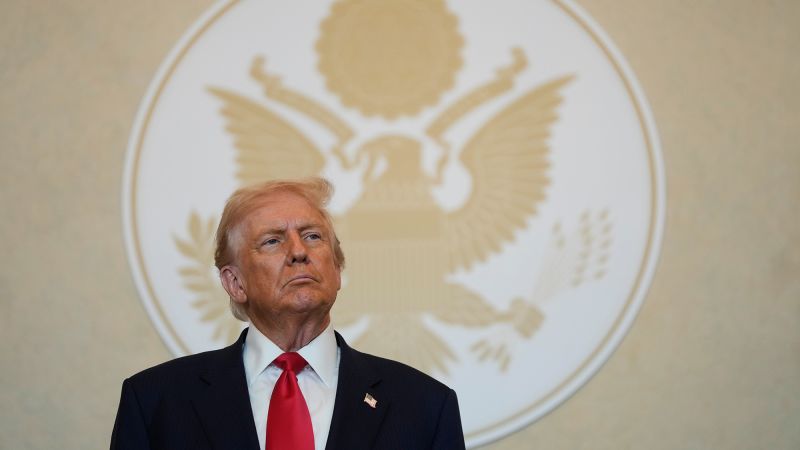
4 Senate Republicans rebuke Trump for a third time this week, voting with Democrats against president’s global tariffs
The Senate on Thursday passed a resolution aimed at ending President Donald Trump’s global tariffs introduced last spring, with four Senate Republicans joining Democrats to object to the president’s trade policy.
For a third time in as many days, Sens. Rand Paul, Lisa Murkowski, Susan Collins and Mitch McConnell, the former GOP leader, crossed the aisle to advance the measure in a 51 to 47 vote. All four voted for separate resolutions earlier in the week targeting Trump’s tariffs on Canada and Brazil.
The resolutions seek to end the tariffs by terminating emergency declarations from the president.
Ultimately, the week’s tariff votes amount to symbolic rebukes of the president’s trade policy, as they aren’t expected to be taken up by the House. Earlier this year, House Republicans moved to block members from being able to force a vote in the near future on the president’s tariffs.
Paul was a co-sponsor of the resolution and McConnell pledged that he would vote for all three of the resolutions. “Tariffs make both building and buying in America more expensive. The economic harms of trade wars are not the exception to history, but the rule,” he said in a statement on Tuesday.
Sen. Tim Kaine, one of the sponsors of this resolution, as well as the other two that passed earlier this week, said earlier in the week that the president’s use of the International Emergency Economic Powers Act was not appropriate.
“I’m against tariffs generally, unless they’re used very specifically. But I’m also against letting presidents just invent a reason to use emergency powers to do all kinds of things without coming to Congress,” he told reporters Tuesday, comparing congressional oversight of the executive to a muscle that has to be exercised regularly.
The Virginia Democrat has acknowledged the House will not take up his resolution, and that they don’t have a veto-proof majority backing the measure in the Senate. But he has insisted that adopting anti-tariff resolutions will still send a strong message to the president.
“I did learn in the, in the first Trump term that the president is responsive to things like this. When he sees Republicans starting to vote against his policies, even in small numbers, that makes an impression on him and can often cause him to alter his behavior,” Kaine said.
First Appeared on
Source link






